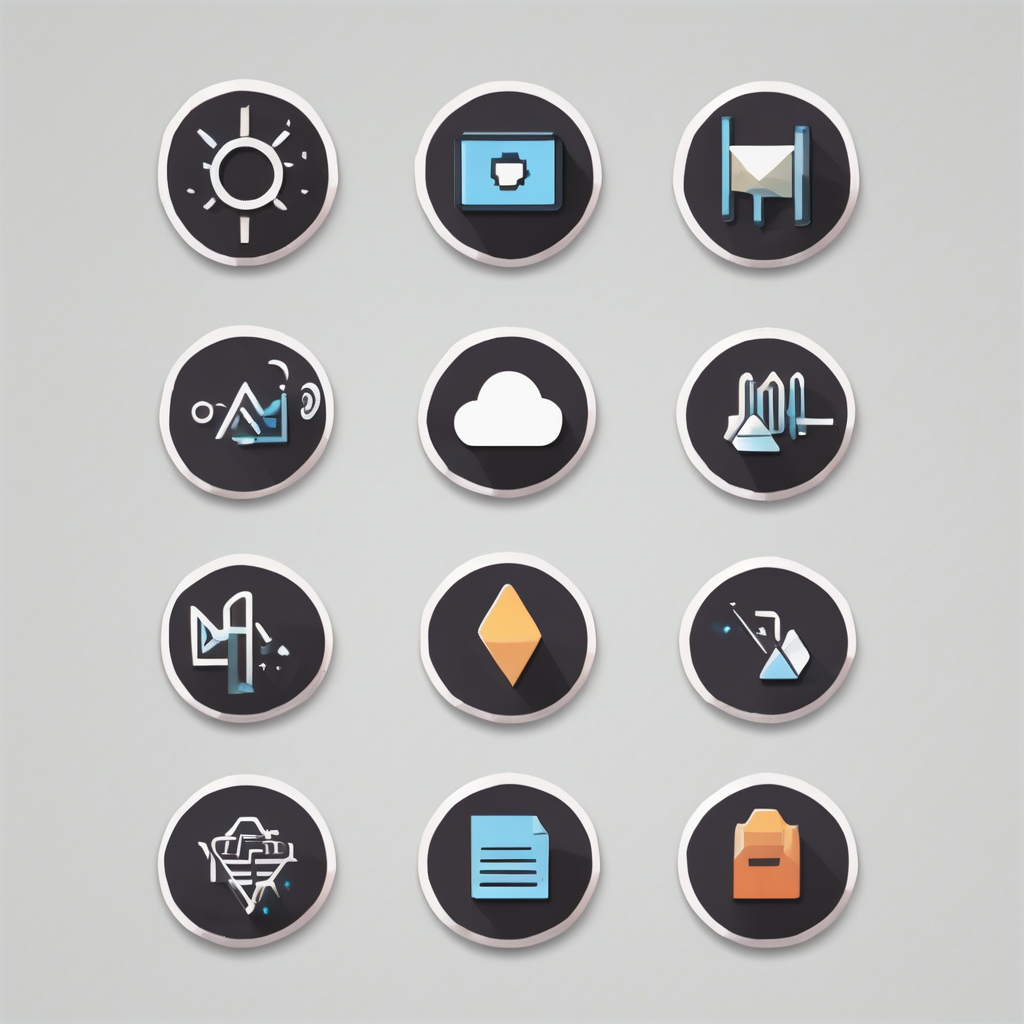Understanding Asthma Management in Teenagers
Asthma presents unique challenges for teenagers, impacting both their daily lives and long-term health. Asthma management is crucial during this developmental stage as it helps mitigate the frequency and severity of asthma symptoms. Effective asthma management ensures teenagers can maintain optimal teenage health by staying active and involved in school and social activities without limited interactions due to asthma-related issues.
However, managing asthma can pose several challenges for teens, who often seek independence and may not prioritise their health. They might struggle with regular medication adherence, recognising early asthma symptoms, or avoiding known triggers, which are all essential for effective asthma management. Emotional and psychological aspects also come into play, as teens may be reluctant to use their inhalers in public due to a desire not to appear different from their peers.
Also to read : Enhancing children”s emotional well-being: the power of consistent mindfulness practices for better emotional regulation
To overcome such challenges, supportive interventions from family and healthcare providers are vital. Educating teens about their condition and involving them in decision-making regarding their health can empower them to take control. The development of structured asthma action plans provides clarity and direction in managing their condition effectively.
The Role of Mobile Health Applications
In the realm of digital health, mobile health apps are revolutionising how teens manage asthma. These apps are designed to simplify asthma technology, providing tools for better asthma control. One key advantage is the accessibility these apps offer for asthma management, empowering teens to actively track their health data. By integrating real-time monitoring capabilities, these applications can provide instant feedback on asthma symptoms, ensuring teenage health is continuously monitored.
Also to read : Unveiling the cognitive benefits of bilingualism: how being multilingual enhances resilience in aging adults
Statistics reveal that a significant number of teens with chronic conditions are turning to mobile health solutions for management, primarily due to the convenience and immediate availability of information these apps offer. The combination of tracking and analysing personal health metrics with professional advice from healthcare providers makes these applications a credible asset for asthma control.
Furthermore, these apps often include education modules, encouraging users to learn more about their condition. This technologically savvy yet accessible interface can drastically improve engagement and adherence to treatment plans, providing a meaningful impact on overall health outcomes. By keeping teens informed and involved, mobile health applications serve as an essential component in modern asthma management solutions, promoting disciplined and informed health choices.
Features of Effective Mobile Health Applications
To ensure mobile health apps are effective in managing asthma, certain app features are essential. The design must be user-friendly to cater to teenagers, whose familiarity with digital platforms can be varied. Intuitive navigation is crucial, enabling teens to easily access and utilise the app’s functionalities without frequent guidance. This ease of use encourages regular engagement and better asthma monitoring.
Real-time monitoring capabilities are another critical feature. These allow for immediate symptom tracking, empowering users to respond promptly to changes in their condition. By providing real-time data, these apps help in accurately identifying patterns, ultimately aiding in more effective asthma management.
Customizable alerts and reminders play a significant role in ensuring medication adherence. These alerts can be tailored to suit individual preferences, reminding teens to take medications or log their symptoms. Such reminders support consistent health tracking, which is vital in sustaining good teenage health.
Incorporating these features not only enhances the functionality of asthma apps but also promotes proactive health management among teenagers, bridging the gap between technology and effective healthcare solutions.
Evidence-Based Strategies for Asthma Control
Asthma can be particularly challenging for teenagers, impacting not only their health but also their social interactions. Implementing effective asthma techniques is crucial for enhancing medication adherence and improving overall teen health strategies. One approach involves using reminders through mobile health apps to ensure timely ingestion of medications, providing a structured solution to a common problem for teenagers seeking independence.
Recognising and managing asthma triggers is another vital aspect. Educating teenagers on potential triggers, such as allergens or environmental conditions, allows for proactive avoidance, significantly reducing flare-ups. Mobile apps can serve as a digital journal, helping teens track their asthma symptoms and identify patterns over time.
Maintaining a detailed symptom diary through these apps further supports focused management strategies. Such diaries provide insight into variable symptoms, facilitating better healthcare provider engagements and tailored treatment plans. This hands-on approach empowers teens to understand their condition thoroughly.
Encouraging teenagers to utilize evidence-based strategies not only supports their asthma management but also fosters independence. By integrating technology with traditional healthcare methods, teens can achieve more effective disease control, ultimately leading to enhanced quality of life and sustained teenage health.
Involving Parents and Healthcare Providers
The collaboration between parents, teenagers, and healthcare providers is essential in ensuring effective teen asthma support. Engaging all parties facilitates the integration of healthcare provider support into daily routines, enhancing asthma management outcomes. Parents play a pivotal role in promoting the use of health apps by providing guidance and motivation to their children. Encouraging regular app usage can help teens develop consistent health tracking habits, ultimately supporting better asthma control.
Communication is key. Frequent dialogue among teens, parents, and healthcare providers ensures that any changes in asthma symptoms are promptly addressed. This tripartite approach can help identify patterns and triggers, allowing for timely intervention and adjustments to management plans. Furthermore, healthcare provider recommendations can be invaluable, as they bring expert insights into which apps best meet the individual needs of teens.
To bridge gaps, parents should understand the features and functionalities of the devices their children use for asthma monitoring. Being involved doesn’t mean intruding upon a teen’s independence, but rather fostering a supportive environment where teens feel empowered to take charge of their own health. Ultimately, such collaboration nurtures informed and responsible health choices.
App Reviews and Recommendations
In the landscape of asthma management, selecting the right app is crucial for effective health tracking. Top-rated apps often provide an array of app features tailored to teenage needs, such as real-time asthma monitoring and customizable alerts to boost medication adherence. These features are designed to tackle the unique challenges of teenage health management, ensuring that users can stay informed and engaged with their health.
When considering app reviews, real user experiences are invaluable. Testimonials frequently highlight benefits like improved symptom awareness and easier access to personalised data. Teens often appreciate the user-friendly design, which makes consistent monitoring less burdensome. For instance, a teenager shared how an app’s intuitive navigation simplified managing their asthma routine.
Recommendations from healthcare providers are equally critical. Experts often suggest apps that integrate smoothly into existing treatment plans and provide reliable asthma technology for chronic disease management. Their insights are based on a combination of up-to-date digital health innovations and patient feedback.
Ultimately, effective app recommendations should focus on providing seamless, accessible tools that empower teens to independently manage their conditions while remaining connected to their healthcare support networks.
Future Trends in Mobile Health for Asthma
The future of mobile health is paving a new path in asthma care, particularly for teenagers. With innovations constantly emerging, the role of technology in medicine is becoming more pronounced. Notably, artificial intelligence (AI) and machine learning (ML) are set to revolutionise app development. These technologies provide advanced data analysis, allowing apps to predict asthma flare-ups and recommend personalised strategies.
As these systems learn from an individual’s data, they improve over time, enhancing effectiveness. Such intelligent asthma care solutions aim to offer more precise, tailored intervention methods, bolstering both health outcomes and user engagement.
Additionally, the integration of wearable technology is gaining momentum. Devices such as smartwatches can synchronise with mobile apps, offering seamless health monitoring. This bridge between hardware and software ensures continuous symptom tracking, crucial for effective management.
The horizon for digital health in asthma is promising, with predictions suggesting that these tools will become increasingly sophisticated, yet still accessible. As technology progresses, the focus remains on empowering teens, giving them a greater stake in their asthma management while staying connected with healthcare professionals. This evolution signifies a brighter, more autonomous future for teenage healthcare management.
Potential Challenges and Solutions
In the realm of asthma management, teenagers often face unique challenges when navigating mobile health applications. Common issues include difficulty engaging with complex technology and the feeling of being overwhelmed by numerous app features. Additionally, technology barriers such as unreliable internet access or outdated devices can hinder effective use.
Addressing these challenges requires tailored solutions. Simplifying app interfaces with clear, user-friendly design can significantly enhance teenager engagement, making health management less daunting. Providing tutorials or step-by-step guides as part of the app can aid in demystifying complex features. Encouragement from peers or parents to explore the app can foster familiarity and regular use.
Another solution involves ensuring compatibility across devices and offline functionality, allowing teens to access vital information regardless of internet connectivity. Collaborating with healthcare providers to offer routine app reviews and updates ensures that digital health tools remain aligned with current asthma management strategies.
Regular follow-ups with healthcare providers further overcome technology-related challenges, offering teens reassurance and guidance. By refining these aspects, mobile health applications can successfully support teenagers, empowering them to manage their asthma effectively despite technological hurdles.

